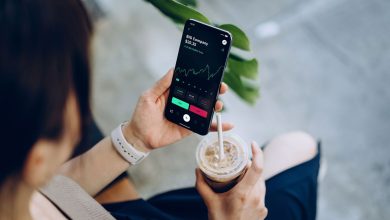Key Steps and Tips for Successfully Starting a Forex Brokerage

Forex brokers are essential for anyone looking to trade currencies on the foreign exchange market. If you’re interested in opening a Forex brokerage firm, it’s crucial that you take the time to learn about how the industry works. Once you have a solid understanding of the market, you can begin putting together a business plan and taking the necessary steps to make your dream a reality. With hard work and commitment, it is possible to start a successful Forex brokerage.
A Forex broker is a financial services company that provides traders access to a platform for buying and selling foreign currencies. Brokerages offer traders access to the interbank market, which is a network of banks that trade with each other. Brokers earn their money by charging commissions on every trade.
Table of Contents
Forex brokerages serve both retail and institutional clients.
- A retail trader is someone who trades on his or her own behalf. A common goal of these traders is to earn a profit by speculating on the direction of currency pairs.
- A bank or a large company that needs to exchange foreign currency for business purposes is an institutional trader.
Different Forex brokerage firms may provide different features and services. Some of the platforms may cater to experienced traders, while others may be more appropriate for beginners.
A Guide to Starting a Forex Brokerage
To establish your own foreign exchange brokerage business, you will need to follow these three steps:
- Receive a license from an appropriate regulatory body
- Open a bank account and incorporate the company
- Establish a trading platform
Let’s explore each of these steps in more detail.
-
Regulations and License
Getting licensed by a financial agency is the first step to starting a Forex brokerage. Getting a license is a legal requirement for doing Forex business in most jurisdictions.
In the world of finance, there are a number of different bodies that regulate the industry. The particular regulator you need to get a license from will depend on where you plan to operate your business. Keep in mind that each country has its own set of financial regulations that you’ll need to adhere to.
Among the most well-known regulatory bodies are:
- The Financial Conduct Authority (FCA) in the UK
- The Cyprus Securities and Exchange Commission (CySEC)
- The National Futures Association (NFA) in the US
As a general rule, most regulators will require that you have a certain amount of capital in order to obtain a license. This is necessary so that you can meet your financial obligations to clients.
It will also be necessary to prove that your risk management policies are sufficient. This is to make sure your clients and your business are protected.
Furthermore, you must be physically present in the country where you are regulated. In this way, you can easily be monitored by the regulator and ensure that you are complying with its requirements.
The regulator will grant you a license once you have met all of the requirements. Once your application has been approved, you will be permitted to operate a forex brokerage legally in that jurisdiction.
As a licensed Forex broker, you will be required to adhere to certain rules and regulations set forth by the financial regulator. By adhering to these regulations, you can help create a safe and secure environment for you and your clients.
Among the most important rules that you must follow are:
-
Maintaining a minimum capital requirement
You will need a substantial amount of net capital to operate a Forex brokerage. Having this insurance is a necessity in order to protect your business in case of potential losses.
-
Complying with financial reporting requirements
Moreover, you’ll have to send monthly and annual reports outlining your company’s finances. These reports allow regulators to determine whether you are in compliance with regulations.
-
Keeping client funds separate
Keep your company’s and your clients’ money separate. Your client’s money will be safe if your company goes bankrupt.
-
Adhering to anti-money laundering (AML) regulations
Being a Forex broker also means adhering to anti-money laundering rules. Therefore, you will have to put in place procedures to detect and prevent money laundering.
Complying with these requirements is essential to avoid severe penalties, such as losing your license.
The requirements for operating a Forex brokerage are subject to change over time. As such, it is essential to keep abreast of the latest changes in order to ensure that your business remains compliant with the regulatory environment.
-
Creating a Company and Opening a Bank Account
The second step in starting a Forex brokerage is to set up a company. This will involve choosing the legal structure of the business and opening a bank account. How much paperwork you have to do and what kind of taxes you owe will depend on the legal structure you choose. Some common options are sole proprietorships, partnerships, limited liability companies (LLCs), and corporations. Getting advice from an accountant or lawyer will help you choose which option is best for your business.
Additionally, your company will need a bank account. Your client’s funds will be held in this account, and it will be subject to all relevant rules and regulations.
-
Establishing a Trading Platform
Creating a trading platform is the third step in starting a Forex brokerage business. The platform lets your customers trade currencies. Several methods exist for building a trading platform. You can build the platform on your own, or, alternatively, you can purchase a platform from an established provider.
For self-development, you’ll need an experienced development team. Development can take a lot of time and resources, but if you have the resources and knowledge, it can be a great option. By designing your own trading platform, you may have an advantage over buying an existing one, as you can ensure that it meets all your preferences and needs.
An entirely new trading platform, however, can be an extremely costly endeavor. If you fear that you won’t be able to create and launch a platform successfully, it is better to buy an existing one. Choosing this option will likely be less expensive and allow you to begin using the solution right away.
Buying an existing platform will mean finding a reputable white label brokerage provider. Don’t just pick someone based on their price. Read reviews first. Then you must sign a contract with a provider and pay all the fees.
These features are typically included in a white label brokerage platform:
- a ready-made and customizable website
- a trading platform
- a CRM system
- back-office tools
- marketing materials
- customer support service
In most cases, white label solutions are the fastest and most cost-effective way to start a Forex brokerage. Moreover, it may help to mitigate some of the risks that come with starting a new company.
No matter what path you choose, make sure your platform is secure and compliant with all regulations.
There are a few key steps that you’ll need to take in order to start a Forex brokerage. Firstly, it’s important to select the right business structure for your company. The required permits and licenses must be obtained. After you comply with that, you will have to build a trading platform. It’s your responsibility to make sure your platform is secure and compliant with all regulations. Following these steps, you can set up your Forex brokerage business and make it successful.




